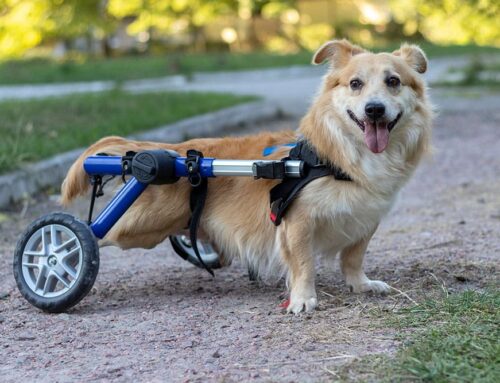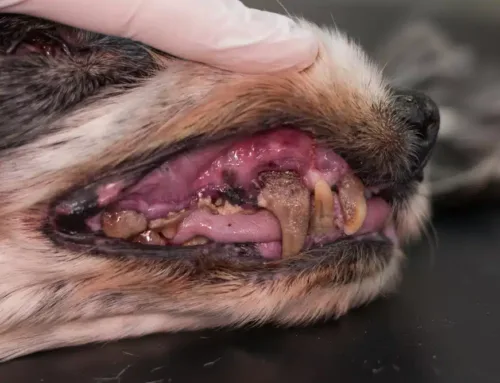Did you know that nearly 6 million dogs and cats are diagnosed with cancer annually in the United States? Much like humans, pets can develop various types of cancer, ranging from skin tumors to internal organ malignancies. However, with vigilant care and early detection, there’s hope for effective treatment. At The Gentle Vet in West Caldwell, New Jersey, we are dedicated to guiding pet owners through the process of identifying, managing, and preventing cancer in their beloved pets.
This guide will help you recognize the warning signs, understand why prompt veterinary care is essential, and learn how to support your pet through their journey.
What is Cancer in Pets?
Cancer is an abnormal growth of cells that can occur in virtually any part of the body. These uncontrolled cells may form tumors or infiltrate tissues and organs, disrupting normal bodily functions. While the causes of cancer in pets are often multifactorial, they can include:
- Genetic predisposition: Some breeds, such as Golden Retrievers and Boxers, are more prone to specific cancers.
- Environmental exposures: Prolonged contact with tobacco smoke, pesticides, or UV rays can increase the risk.
- Age: Cancer is more common in older pets as cell repair mechanisms weaken.
Common Cancer Types in Pets
Some of the most frequently diagnosed cancers in pets include:
- Lymphoma: Affects the lymphatic system and is common in both cats and dogs.
- Mast Cell Tumors: Often found on the skin, especially in dogs.
- Hemangiosarcoma: A blood vessel cancer, particularly aggressive in dogs.
- Squamous Cell Carcinoma: A skin cancer often seen in cats.
- Osteosarcoma: A bone cancer more prevalent in large dog breeds.
Recognizing the Symptoms of Cancer in Pets
Early detection is key to improving outcomes. Keep an eye out for these warning signs:
- Unusual lumps or bumps: Particularly if they grow or change over time.
- Unexplained weight loss: A sudden drop in weight without dietary changes.
- Persistent sores or wounds: Especially those that do not heal.
- Changes in appetite: Refusal to eat or difficulty chewing.
- Fatigue or lethargy: Noticeable loss of energy or reluctance to engage in daily activities.
- Vomiting or diarrhea: Especially if chronic or unexplained.
- Difficulty breathing or coughing: Could indicate lung or throat involvement.
If you notice any of these symptoms, don’t wait. Schedule an appointment with your veterinarian promptly. Visit our Sick Visits page for more information on urgent care.
The Role of Early Detection and Veterinary Care
Many cancers can be successfully treated when diagnosed early. Regular veterinary check-ups, including thorough physical exams and diagnostic testing like blood work and imaging, are critical.
Our Approach at The Gentle Vet
We incorporate cancer screenings into our Wellness and Preventive Care services, ensuring your pet’s health is monitored comprehensively.
Treatment Options for Pet Cancer
The best treatment plan depends on the cancer type, location, and stage. Common options include:
- Surgery: For localized tumors that can be safely removed.
- Chemotherapy: Often used to slow or stop cancer growth in cases like lymphoma.
- Radiation Therapy: Targeted treatment for specific types of tumors.
- Palliative Care: Focused on improving quality of life for pets with advanced cancer.
Post-treatment, we recommend tailored recovery plans, including follow-up visits, nutritional support, and lifestyle adjustments. Learn more about the surgical services we offer on our Surgery page.
Prevention Tips: Reducing Your Pet’s Cancer Risk

While not all cancers are preventable, you can lower the risk by:
- Maintaining a healthy diet: Focus on high-quality, balanced pet foods.
- Providing regular exercise: Keeps your pet fit and boosts their immune system.
- Avoiding exposure to carcinogens: Minimize contact with tobacco smoke, chemicals, and excessive sunlight.
Additionally, spaying or neutering your pet can reduce the risk of reproductive cancers. For more tips, visit our How to Help Your Indoor Cat Act Naturally article.
We’re Here to Support You
At The Gentle Vet, your pet’s health is our priority. Recognizing the early signs of cancer and acting promptly can make all the difference in your pet’s quality of life. Whether you’re seeking a diagnosis, treatment, or preventative advice, our compassionate team in West Caldwell, New Jersey, is here to help.
If you’re concerned about your pet’s health, don’t hesitate—contact us to schedule a consultation today. Together, we can give your pet the best possible care.








Leave A Comment